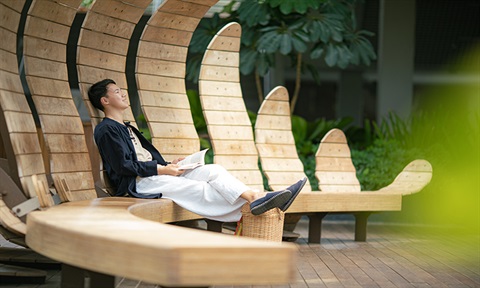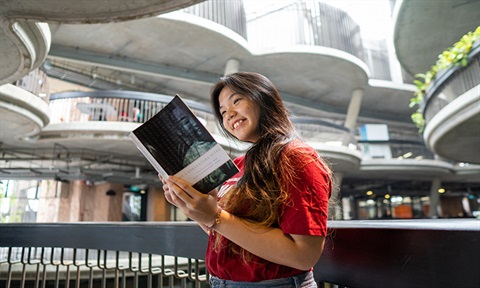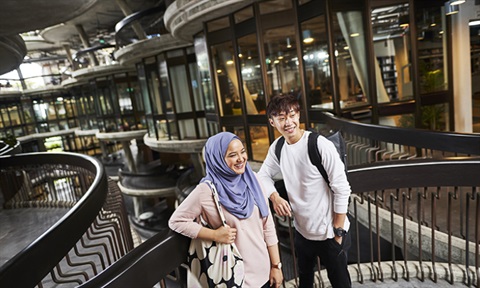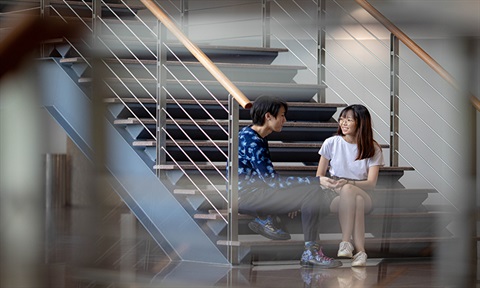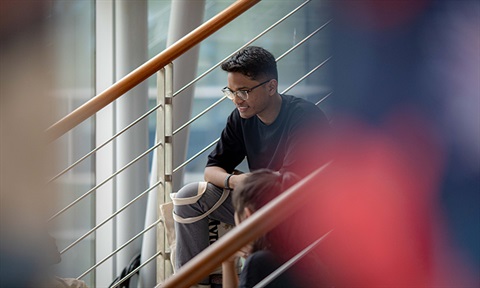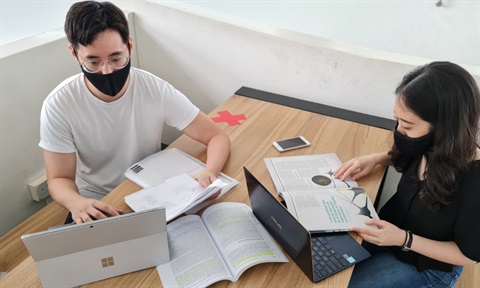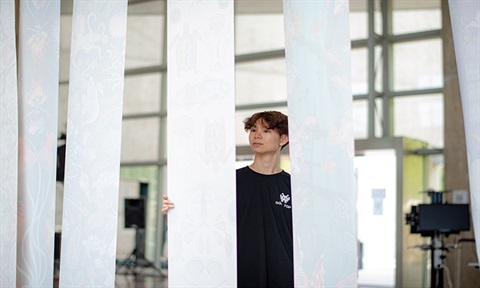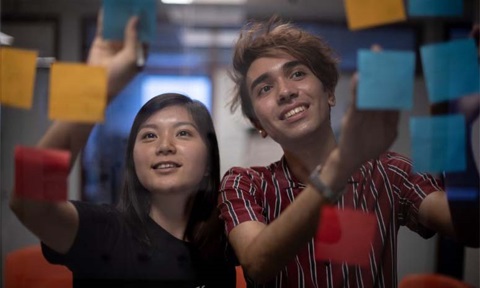Curriculum Structure
The core courses equip students with a firm foundation in their two Majors. Students can then choose from a range of prescribed electives in their interests.
From AY2021 onwards, to graduate, students must complete three (3) categories of requirement, totalling at least 138 Academic Units (AUs):

Overall Requirement
Table 1: Summary Table of the Double Major Programme:
| Major Requirements (AUs) | Interdisciplinary | Broadening and Deepening Electives (BDE) (AUs) | Total AUs | ||||||
|---|---|---|---|---|---|---|---|---|---|
| Core | Prescribed Electives | Final Year Project | Inter-Major Prescribed Electives | Common Core | Professional Series | Care, Serve, Learn (CSL) | |||
| Major A | 12 | 26 | 8* | 8 | 14 | 11 | 3 | 18 | 138 |
| Major B | 12 | 26 | |||||||
*Students who are eligible to do the FYP will be strongly encouraged to do an inter-major FYP. Students whose GPAs fall in a certain range can choose whether or not to do the FYP. Students who do not do the FYP must clear 8 AUs of PEs (two 4000-level courses, one from each discipline) within the double major.
Interdisciplinary Collaborative Core Requirement
Table 2: Interdisciplinary Collaborative Core (ICC)
| Student take all courses: | Total AUs |
|---|---|
| ICC Common Core | 14 AUs |
| Career Design & Workplace Readiness in the V.U.C.A World | 2 |
| Ethics & Civics in a Multicultural World | 2 |
| Healthy Wellbeing | 2 |
| Inquiry and Communication in an Interdisciplinary World | 2 |
| Science & Technology for Humanity | 3 |
| Sustainability: Society, Economy & Environment | 3 |
| ICC Professional Series | 11 AUs |
| Digital Proficiency | 3 |
| Internship | 5 |
| Profession Preparation | 1 |
| Professional Communication | 2 |
| Care, Serve, Learn | 3 AUs |
Broadening and Deepening Electives Requirement
Table 3: Broadening and Deepening Electives (BDE)
| Students may choose from the list of courses offered by other schools | Total AUs |
|---|---|
| Free BDE | 18 |
What are the key milestones for your 4 years

Year 1
In the first year, students will learn the fundamentals of each major through foundational core courses. These introductory modules will be taken with several Interdisciplinary Collaborative Core (ICC) courses.

Year 2
Apart from completing core and ICC courses, students get to embark on more focused studies by choosing prescribed electives (PEs) from various categories in each major.
Students can begin planning courses for exchange or consider doing Undergraduate Research Experience on Campus (URECA) projects upon invitation.

Year 3
Students will continue to explore the two majors and take on more advanced modules. One semester will be spent overseas if students have chosen to study abroad as part of their exchange programme.

Year 4
In the final year of study, students will spend two semesters focusing on the development and creation of their Final Year Project (FYP). Students get to work independently under the mentorship of faculty supervisors.
Double Major students may also choose to do a FYP of either of the major, an interdisciplinary FYP, or extend an earlier URECA project into a FYP.
Curated Double Major Combinations
All 16 academic combinations offer exciting multidisciplinary approaches and bring different disciplines into conversation with each other. Many of these disciplines already exist as single major degrees in NTU’s progressive College of Humanities, Arts and Social Sciences, while several new emphases are being introduced. For example, Art History will be offered for the very first time as a major in a Singapore university and will make a valuable contribution to Singapore’s exciting Arts and Culture environment, while Media Analytics, a cutting-edge new major, offered by The Wee Kim Wee School of Communication and Information, will enable students to understand, and engage with, the shifting social media landscape, big data, and digital media, and it will develop students who have high-level competency in evaluating organisational opportunities and risks.
All of these combinations will focus on developing genuine academic depth in two disciplines and will encourage students to develop a truly multidisciplinary outlook and a set of widely usable skills after graduation.


